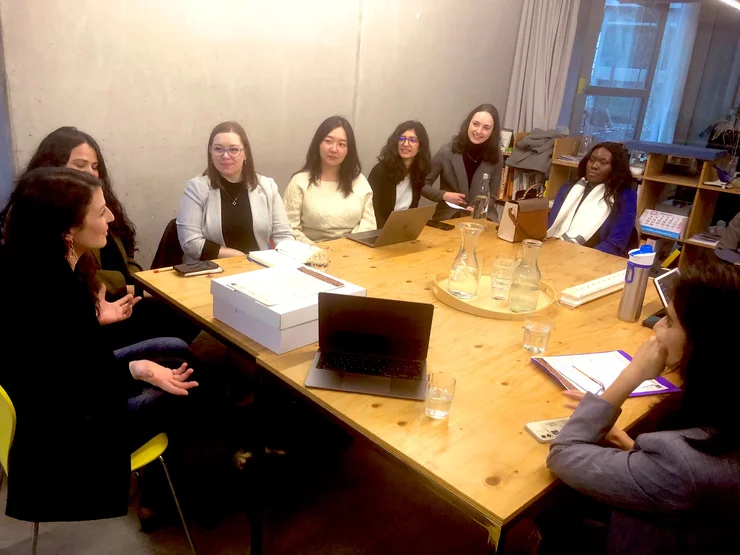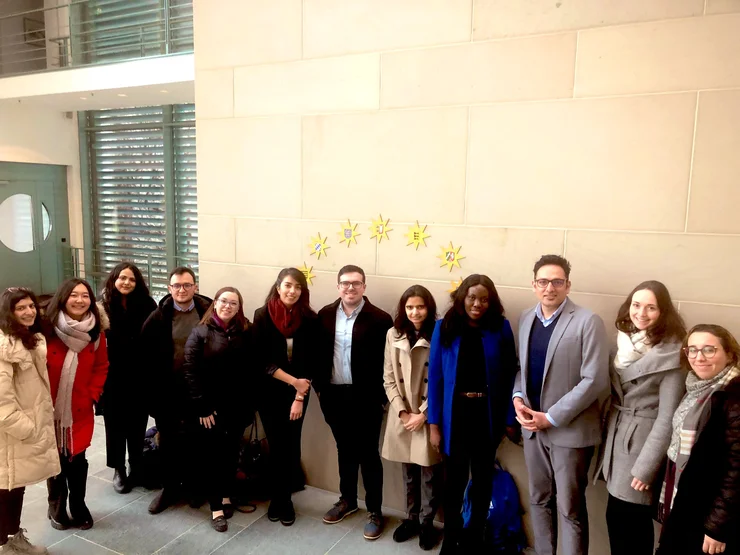The Project Group on Digitalization Strategy Recommendations for the State of Thuringia visited the German Federal Chancellery in Berlin.
The project group members were welcomed at the Federal Chancellery in Berlin by Sebastian Haselbeck, the deputy head of the Digital Government Unit (DGU) at the Federal Chancellery. Ms. Amélie Heldt provided an overview of the work of DGU and how it coordinates the digitization at the federal level through its multidisciplinary teams. During her presentation, Ms. Heldt discussed the importance of DGU in streamlining the role of data policy and data regulation in the national digitalisation debate in Germany.
The discussion was complemented by a detailed overview of Germany's federal strategy towards digitalisation by Mr. Ulrich Reinfried, who was specially invited from the Federal Ministry of Digitalization and Transport. In his presentation, Mr. Reinfried focused on three essential domains, namely (1) connected society, (2) innovative economy, and (3) digital government, encompassing 25 areas of action that enable the development of digital infrastructure, smart regions, the data economy, new employment, cybersecurity and digital sovereignty, among others. The project participants were particularly interested in the monitoring approach driven by a qualitative and quantitative impact assessment of all federal digitalisation projects. In addition to discussing the monitoring in depth with the digitalisation experts, the participants presented the key findings of their policy recommendation paper that focuses on infrastructure, education, industry, and urban/rural development in Thuringia as a whole.

As part of their visit to Berlin, the project group participants also visited Konnektiv Kollektiv GmbH, which works at the intersection of digital transformation and inclusive sociopolitical change. In her welcome remarks, the co-founder of the Konnektiv Kollektiv, Ms. Geraldine de Bastion explained some of the Konnektiv's themes, including humanist approaches to digitalisation, open hardware, and smart cities. Participants were particularly interested in discussing the value-based framework for digitalisation, the gender digital divide, and digital innovation hubs.
The field trip to Berlin was a valuable and enlightening experience for the project group participants. The visit to the German Federal Chancellory provided a unique opportunity to gain insight into the workings of government and the role digital policy plays in shaping the country's digital landscape. The visit to the Konnktiv Kollektiv, which focuses on open source, digital policy, digital rights, and open and transparent budgets, further underscored the importance of issues related to digitalization and their impact on society.
The project group on Digitalization is led by Dr. Hasnain Bokhari in collaboration with the Digital Agentur Thüringen.



